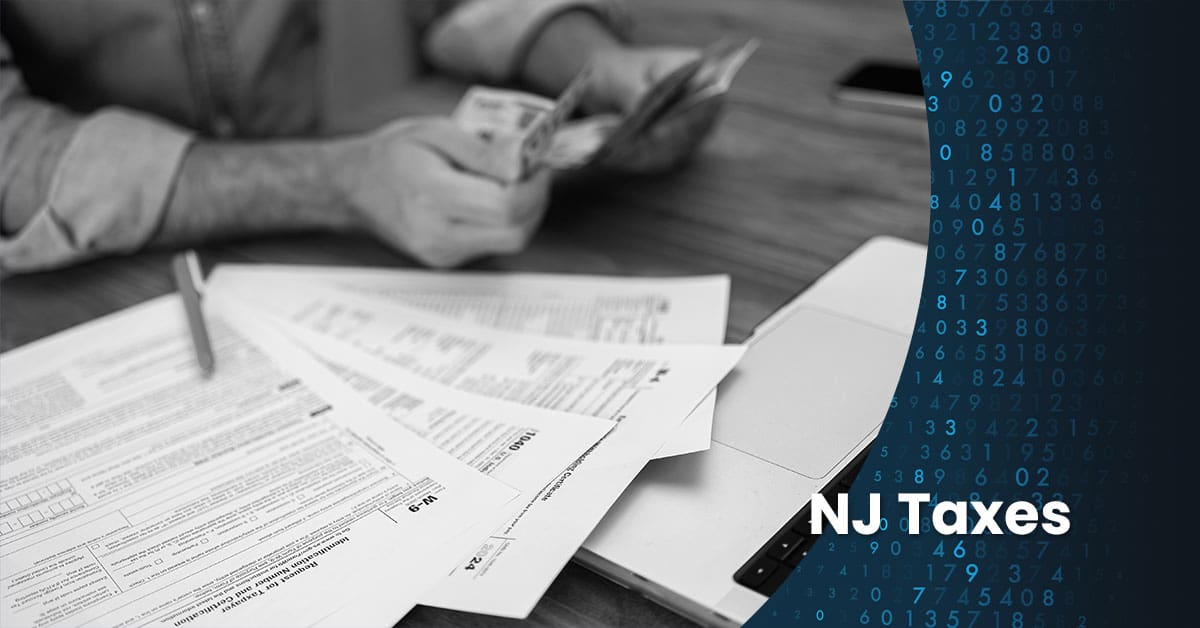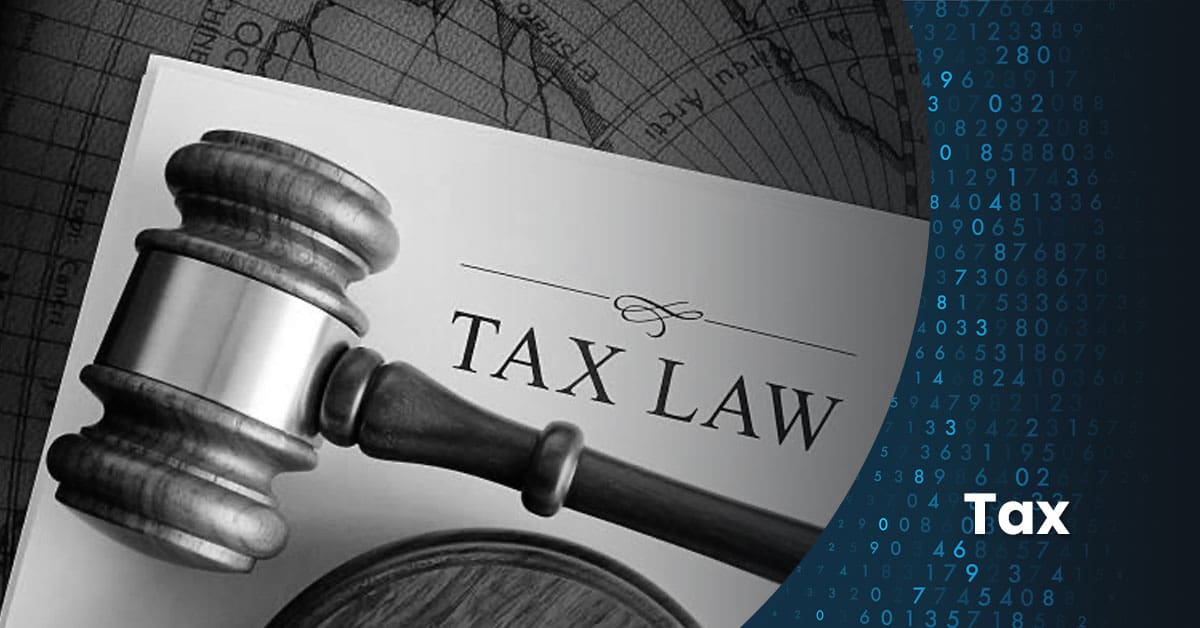On June 30, 2025, Governor Phil Murphy signed New Jersey’s Fiscal Year 2026 budget into law. This includes the enactment of Budget Bill S-2026, in addition to other companion bills related to the FY 2026 Budget. At $59 billion, it marks the largest budget in state history and includes several tax changes that may impact businesses, investors, and individuals.
Below is a breakdown of the most significant provisions.
Expansion of Realty Transfer Fees on High-Value Real Estate (“Mansion Tax”)
The budget establishes a tiered realty transfer fee—commonly referred to as the “mansion tax”—on certain real estate property sales over $1 million:

Takeaway: The tax burden now falls entirely on sellers, not buyers. With the tax rate increases, sellers of high-value properties should factor this cost into their pricing and negotiating strategies.
Tobacco and Vaping Tax Increases
- Vape tax: The tax on liquid nicotine products will increase from 10 cents to 30 cents per fluid milliliter.
- Cigarette tax: Increases the current 13.5 cent per-cigarette tax levy by 1.5 cents to 15 cents, or $3 per pack of 20 cigarettes.
Online Gambling and Sports Betting Taxes
- Previous rates: 15% (online casinos), 13% (sports betting)
- New unified rate: 19.75% for both
Takeaway: The final tax rate of 19.75% on online gambling and sports betting is notably lower than the 25% rate proposed initially by Governor Murphy in his FY 2026 budget. This compromise reflects pushback from industry stakeholders and aims to strike a balance between revenue generation and market competitiveness.
Property Tax Relief Programs
The budget allocates additional funding to property tax relief programs, including Stay NJ, which was initially enacted in 2024 and is scheduled to take effect in 2026.
- Stay NJ: designed to incentivize seniors to stay in the state. The program provides property tax credits for half of their property tax bills, up to $6,500 to homeowners aged 65+ with incomes below $500,000.
- ANCHOR: Continues paying up to $1,750 for senior homeowners and $700 for renters.
- Senior Freeze: Continues property tax relief for eligible seniors and individuals with disabilities.
Takeaway: These programs offer meaningful relief; however, clients should closely monitor eligibility and application timelines.
Business Tax Incentives: Adoption of QSBS and enhancements to the Angel Investor Tax Credit
As part of the FY 2026 budget, New Jersey adopted a Qualified Small Business Stock (QSBS) exclusion, similar to federal rules, which provides a capital gains exemption on the sale of eligible small business stock. The exemption applies to tax years beginning on or after January 1, 2026.
- Eligibility: Investors must hold QSBS for at least five years and meet other federal Section 1202 criteria.
- Policy Goal: This change aligns New Jersey more closely with federal tax treatment and is designed to attract capital to early-stage companies operating in the state.
Also, New Jersey has enhanced the Angel Investor Tax Credit Program by increasing the amount of available tax credits for investments in qualifying technology ventures. The FY 2026 budget also revises the definitions of “New Jersey-based business” and “New Jersey emerging technology business” by lowering the maximum number of employees a company may have to qualify. These changes aim to expand access to credit and encourage early-stage investment.
Takeaway: Business owners are strongly encouraged to explore tax planning opportunities related to these incentives. Regarding the QSBS exclusion, it’s essential to carefully review all eligibility requirements and remain vigilant for guidance from the Division of Taxation, as this could present a valuable long-term opportunity for certain investors and entrepreneurs.
Navigate the New Jersey FY 2026 State Budget
New Jersey’s FY 2026 budget introduces a range of tax changes that present both opportunities and complexities for businesses, investors, and individuals. From the expanded mansion tax and increased gaming and excise taxes to enhanced property tax relief and new investment incentives, such as the QSBS exclusion, the landscape is shifting in meaningful ways.
At Wiss, we’re here to help you navigate these developments and identify strategies tailored to your goals. Reach out to your advisor or contact our tax team to start a conversation.
Frequently Asked Questions
1. Did NJ pass the 2026 budget?
Yes, the Legislature passed the FY 2026 state budget, and Governor Murphy signed it into law on June 30, 2025. The total spending plan amounts to $58.78 billion, with over 75% channeled into community-focused grants, property tax relief, social services, higher education, and aid for schools, municipalities, and counties.
2. What is the budget for the state of New Jersey in 2025?
The FY 2025 state budget totaled approximately $56.64 billion in state funds, supplemented by roughly $27.5 billion in federal funding.
3. What is the budget for higher education in NJ 2026?
The Governor’s FY 2026 budget includes the following allocations for higher education:
- $685.2 million in institutional support for state colleges and universities
- $149.1 million for county colleges
- $4.6 million for independent higher education institutions
- $67.5 million to offset fringe benefit costs at public research universities
However, one detailed analysis indicates $2.1 billion in direct state appropriations for higher educational services overall, a 16.1% decline from FY 2025.
4. How much is the NJ budget?
The official total for the FY 2026 budget is $58.78 billion, marking an increase of over $2 billion compared to FY 2025.
5. What are the major spending areas in NJ’s FY 2026 budget?
The FY 2026 budget places heavy emphasis on:
- Property tax relief (via programs like ANCHOR and StayNJ)
- Social services
- Higher education
- Aid to schools, counties, and municipalities
- Full pension funding and sustained school investments
6. What tax credits or rebates are included in NJ’s 2026 budget?
The budget continues to fund key property tax relief efforts:
- ANCHOR program: up to $1,500 for homeowners and $450 for renters, with a $250 bonus for eligible seniors
- StayNJ program: aims to cut property taxes in half for qualifying seniors
- Senior Freeze program: froze property taxes for eligible older residents





 Previous
Previous









